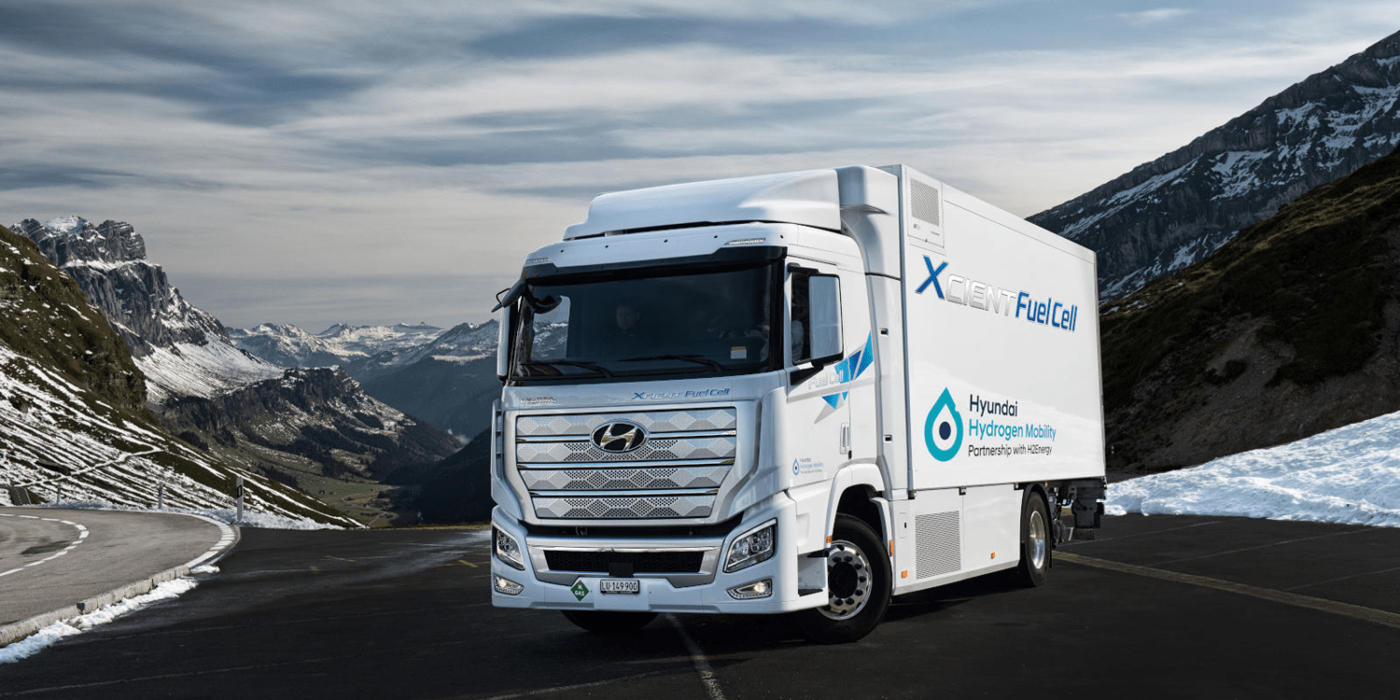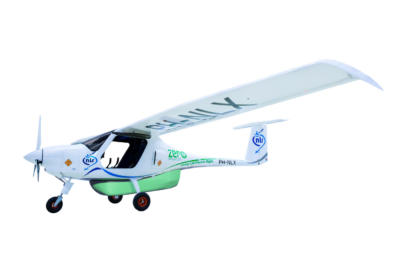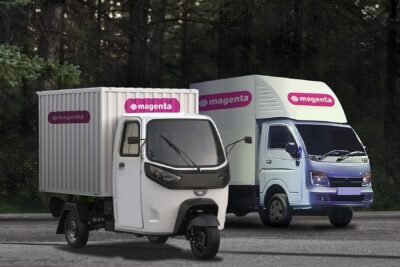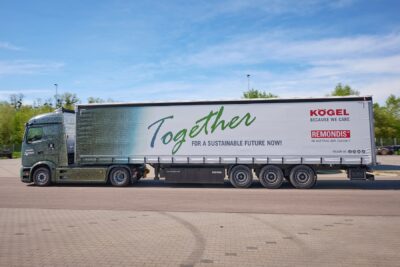Hyundai hand over first of 1,600 H2 trucks in Switzerland
Hyundai has handed over the first seven units of its fuel cell truck XCIENT to customers in Switzerland. Hyundai plans to deliver a total of 50 such trucks to the Alpine nation this year. By 2025 a total of 1,600 of the H2 trucks will be allocated to the Swiss market.
+ + Kindly see our update below + +
In July this year, Hyundai announced that it had shipped the first ten units from Korea to Switzerland. A three-month test phase preceded the current handover to the first customers that include the Migros supermarket chain. The customers will lease the trucks from Hyundai Hydrogen Mobility (HHM) to transport goods throughout the country. The leasing contracts will be concluded on a pay-per-use basis, which does not require any initial investment.
HHM is a joint venture that Hyundai and the Swiss start-up H2 Energy founded last year to coordinate the project. A second joint venture called Hydrospider, in which Alpiq, H2 Energy and Linde both have a stake has also been set up in the slipstream of the project and will manage the production of green hydrogen, its storage and its delivery to filling stations. As part of the business case, both joint ventures and the members of the H2 Mobility Switzerland development association are jointly creating the infrastructure for the fuel cell trucks.
The heavy-duty hydrogen fuel cell trucks are powered by a new fuel cell drive system with 190 kW, using two 95-kW stacks connected in parallel. Seven high-pressure hydrogen tanks provide a storage capacity of almost 32 kg of hydrogen. The Xcient trucks should be able to achieve a range of around 400 kilometres per refuelling operation. Hyundai says that the refuelling process should be as short as eight to 20 minutes.
Hyundai wants to be in a position to build 2,000 units of the H2 truck annually by the end of next year. Now that Hyundai has completed what it views as a test case in Switzerland, the company plans to expand internationally.
Executive vice president and head of the commercial vehicle division at Hyundai Motor Company, In Cheol Lee, says: “The delivery of XCIENT Fuel Cell starts a new chapter not only for Hyundai’s hydrogen push but also the global community’s use of hydrogen as a clean energy source. Today’s delivery is just a beginning as it opens endless possibilities for clean mobility. With the successful delivery of the first Xcient Fuel Cell trucks, we proudly announce our plan to expand beyond Europe to North America and China, where we are already making great progress.”
Just last month Hyundai announced plans to sell hydrogen fuel cell-powered trucks in North America by 2022. With the latest announcement, the South Korean vehicle maker says it is planning the H2 truck’s market launch in other countries. In Europe, after Switzerland Hyundai says that market launches will follow in Austria, Germany, the Netherlands and Norway.
Hyundai is planning a semitrailer tractor in addition to the Xcient, which will have a range of 1,000 kilometres. Hyundai says that the semi-trailer is aimed at global markets such as North America and Europe and will be getting an “improved fuel cell system with high durability and performance”.
A year ago Hyundai presented the concept of a heavy-duty fuel cell truck at the North American Commercial Vehicle Show. Hyundai said at the time that the futuristic HDC-6 Neptune aims to “start exploring opportunities in the United States commercial vehicle market”.
Update Friday 16 October 2020: At a special online event this week Hyundai revealed the South Korean vehicle making giant’s international fuel cell truck sales strategy. Hyundai has concrete sales targets and business strategies for fuel cell truck business in North America, Europe and China.
In presenting their international hydrogen fuel cell trucks international sales strategy, Dr Saehoon Kim, the Senior Vice President Head of Fuel Cell Center, referred to the EU hydrogen policy and the Californian Advanced Clean Trucks Rule. He pointed out that Korea is following the same path with government strategies to embrace the possibilities presented by hydrogen in both the energy and transport sectors, among other areas. Dr Kim underlined the “clear advantage” that hydrogen fuel cell technology has in heavy-duty and long-haul transport.
Dr Kim said: “We need to rethink everything in our world that depends on fossil fuels, and that includes everything that Industry 4.0 and (the) future industrial revolution depends upon.”
Important in this point, he referred to estimations that by 2030, the price of hydrogen is expected to drop to about $4 per kg, and is expected to get even more cost-effective over time. By 2030 the expectation is that hydrogen fuel cell trucks will be comparable with all the trucks running on combustion engines when it comes to fuel costs.
In Cheol Lee, Executive Vice President Hyundai Fuel Cell Business Division presented broader hydrogen fuel cell truck business strategies for Europe, North America and China. For the broader plan Hydrogen Roadmap Europe, he reiterated the familiar plans of the 1600 fuel cell trucks to be on the road by 2025 as above. Working closely with Hyundai Hydrogen Mobility he mentioned that besides the Xcient new semi that the 4×2 and 6×2 trucks in development that can cover a significant portion of heavy-duty transport in Europe. He said that Hyundai wants to decarbonise the entire hydrogen value chain, for which, he said, Hyundai will form global partnerships with energy to produce and utilise green hydrogen based on wind and hydro-power sources across the region. This will allow more than 25,000 Hyundai hydrogen fuel cell trucks to operate in Europe by 2030.
In the US, the Neptune was introduced in 2019. He mentioned that projections show that the percentage of large hydrogen trucks will reach 30% or higher in 16 US states including California by 2030. He underlined that Hyundai will work with those states promoting an EV-friendly environment. “We are already working with companies in the US to provide a complete hydrogen value chain, covering everything from hydrogen production, refuelling stations, and service and maintenance.” Hyundai is also planning a new one-year demonstration project with a “leading US company” that will kick off next year, to explore market entry. “We are also in talks about a triple-digit delivery of hydrogen fuel cell trucks in 2022,” the head of the business division revealed. Hyundai plans to include a 6×4 tractor model that meets the specific requirements of the North American market. Hyundai plans to supply more than 12,000 units to the North American market by 2030.
In China, Lee says, “We believe that China has massive potential for hydrogen fuel cell commercial vehicles and that they are moving fast with the government in the lead to develop the hydrogen industry.” The Chinese government aims to supply one million hydrogen vehicles by 2030. To support this new demand, Hyundai Truck and Bus China will provide medium-duty trucks in 2022 and heavy-duty trucks in 2023, following which, Hyundai plans to develop a new heavy-duty hydrogen truck for China. “Currently we are focussing on China’s four major hydrogen spots, in including Jin-jin-ji, the Yangtse River Delta, the province Guangdong and the Provence Sichuan and discussing corporate initiatives such as joint ventures with local partners. Our plan is to achieve an aggregate sales volume of 27,000 units by 2030 based on the three models mentioned earlier,” he revealed.
As with Europe and the USA, Hyundai plans to sell fuel cell cars in China. “We are aiming much higher, to become an FCEV solution provider by creating a business cluster across the entire hydrogen ecosystem. Hydrogen vehicle leasing, refuelling station operation and hydrogen supply are a few of the potential opportunities,” he explained.
Lee reminded us that “I already announced an investment of 6.4 billion US dollars in the hydrogen business by 2025, and we plan to invest billions more.” He underlined that the Hyundai Fuel Cell Division has a joint venture in Europe and manufacturing locations in Korea and China and that the vehicle-maker is reviewing the potential for production capacity in Europe, if necessary. “Since 1998 hundreds of our hydrogen experts and researchers have studied hydrogen over 22 years,” Lee underlined, reiterating that this is the Xcient is the world’s first mass-produced hydrogen fuel cell truck, the world’s first commercialisation with the first shipment to Europe. He summarised: “We are now writing a new chapter in the history of hydrogen fuel cell trucks.”
hyundai.news, reuters.com, (update: live online video stream) youtube.com





0 Comments